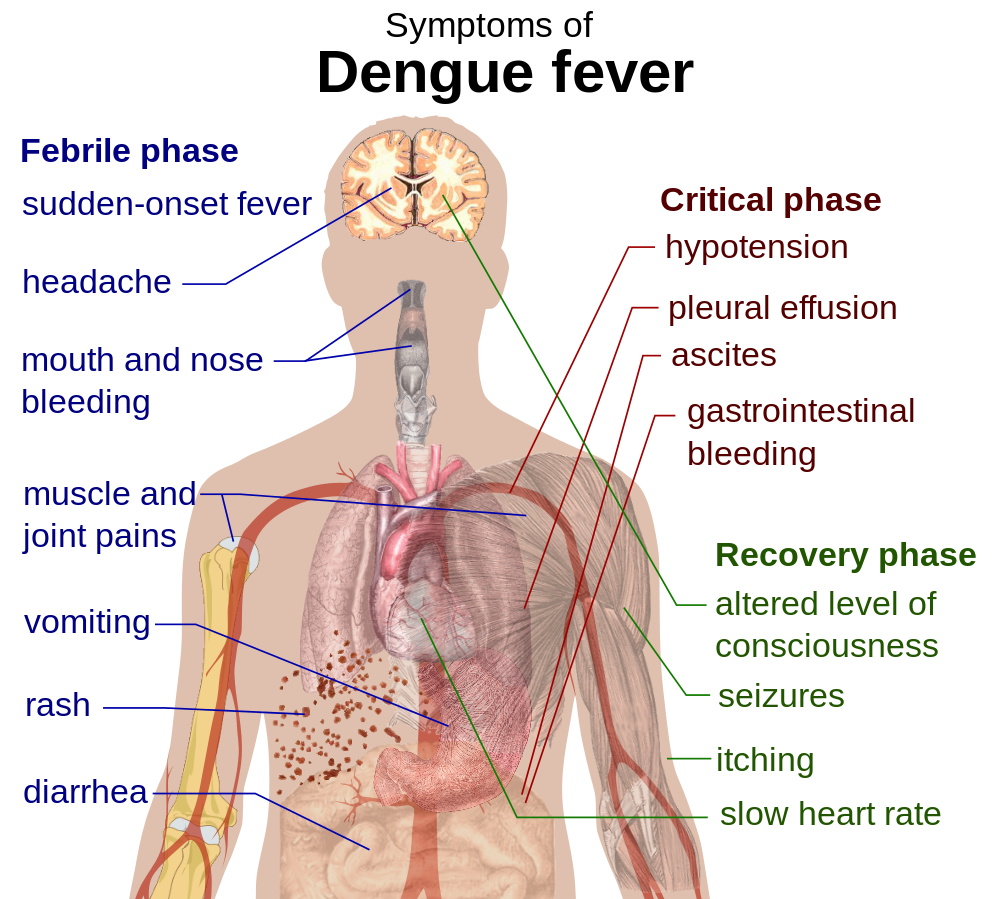FDA Approves Dengue Vaccine Bringing Relief To Millions Across The World

By Neucrad Health India May 5, 2019
Everybody must be knowing how deadly dengue outbreak can be especially in tropical countries like India. Every year it gives tensed moments from monsoon and creates havoc in many lives. According to reports of National Vector Borne Disease Control Programme (NVBDCP), in 2018 alone it has claimed 83 lives till September 30 in India and has also infected 40,868 patients. 2017 was the worst year in the last decade in term of dengue infection, when it affected approximately 1,88,401 people all across the country according to the data published by NVBDCP. It also caused death to 325 patients in India. If we compare these figures with respect to 2013 (when about 75,808 cases got detected), then there is around 250 per cent spike in the dengue cases. West Bengal too faced a challenging time in 2017 defending its population from dengue attack. According to Government figures, the death toll was 38.
The alarming figures of dengue deaths in many tropical countries including India, Bangladesh, parts of China, Indonesia, and the Caribbean islands have lead scientists all over the world in finding preventive measures to fight the menace. Finally, French drugmaker Sanofi developed a vaccine- Dengvaxia for this disease. U.S. FDA gave its approval for the use of this injection in the age group 9 to 16 years on May, 1st 2019 after the vaccine got halted due to public scare in the Philippines where it gave rise to severe secondary infections in some kids. However, before we go into the details of the dengue vaccine let us first know a few facts regarding the disease.
What is the Causal Agent for Dengue Fever?
Dengue is caused by dengue virus (DEN) which has four distinct serotypes (DEN-1, DEN-2, DEN-3 and DEN-4). It belongs to the genus Flavivirus, family Flaviviridae. Among these four serotypes, “Asian” genotypes of DEN-2 and DEN-3 have been in the news for producing lethal secondary dengue infections.
How is dengue virus transmitted from infected patients to healthy individuals?
Dengue virus gets transmitted from infected to a healthy person by vector mosquitoes Aedes aegypti, and Aedes albopictus found throughout the globe. The infected people usually manifests the symptoms within 4 to 7 days of the mosquito bite, and the infection lasts from 3 to 10 days. After entering the mosquito through the blood meal, the virus needs 8 to 12 days incubation period for transmission to another person. In some rare cases, dengue virus also gets transmitted from infected mother to unborn baby in the uterus, and during organs and blood transfusion.
Symptoms of Dengue Infection
Common signs of Dengue infection also known as backbone fever includes:
- ∙ Body ache especially in the muscle and joints, and severe headache.
- ∙ Appearance of skin rashes.
- ∙ Pain behind the eyes.
- ∙ Sudden high fever.
- ∙ Fatigue, vomiting, and nausea.
- ∙ Mild bleeding from gums, nose, or easy bruising.
The secondary infection from dengue can be severe and often lead to haemorrhage or shock.
How would the dengue vaccine, Dengvaxia help people?
According to reports of the C.D.C., approximately 400 million dengue virus infections occur throughout the globe. Out of this, 500000 patients get a severe form of dengue. If individuals receive the Dengvaxia vaccine (developed by Sanofi Pasteur), then there is a significant reduction in the risk of the disease. This vaccine is given in the form of three injections where the first dose gets followed by two more shots six months and twelve months after the first injection. Children between 9 to 16 years living in areas prone to dengue can only take this vaccine as there is a dark history to this immunisation.
What happened to school kids after administering Dengue Vaccines in the Philippines?
In the Philippines, dengue vaccines sparked a national panic when it made some small children prone to secondary infections and measles. It claimed the lives of over 355 kids. This vaccine does not work in some children (who never had dengue before) and increases the risk of a severe complication known as plasma leakage syndrome. Here the blood capillaries break down and ooze the plasma from the blood. Though this complication is rare, more studies and safety precautions are required before administering the vaccine.
Image credit: Mikael Häggström, public domain





